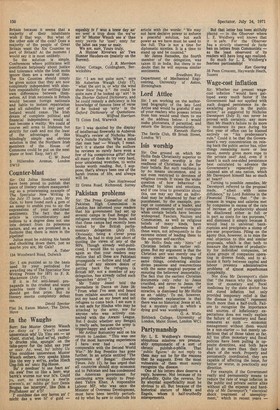Isis worship
Sir:One ground on which Mr Hollis finds Christianity superior to Isis and other worship is the readiness of Christians to die for their beliefs. But such readiness is by no means uncommon, and is not even restricted to devotees of religious creeds. It raises the wider question of how behaviour is affected by ideas and emotions, and if one tries to generalize about this, one may say that an individual may be influenced by fear of punishment, by the example, precept or command of a leader, and by general example and contagion when certain beliefs have become widespread. Fascism, Nazism and Communism, as well as religious beliefs of many kinds, have influenced their adherents in all these ways, not infrequently to the extreme extent of leading them to the supreme self-sacrifice.
Mr Hollis finds only ' hints ' of Christian beliefs in earlier religions. But my argument is that the Christian sect was merely one of many similar sects, hoping the same things, celebrating similar divine passions and resurrections with the same magical purpose of ensuring the believers' immortality. The fact that the earliest Christian documents only refer to Jesus crucified, and never to Jesus, the teacher and the • worker of miracles, is dismissed by Mr Hollis as an oddity.' To me, however, the simplest explanation is that there was no historical Jesus at all, but a mystery cult in which a dying god was worshipped.
G. A. Wells Birkbeck College, University of London, Malet Street, London WC1










































 Previous page
Previous page